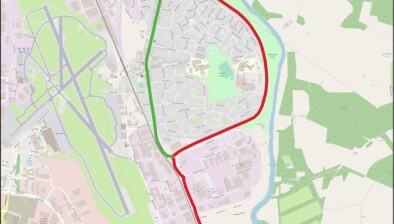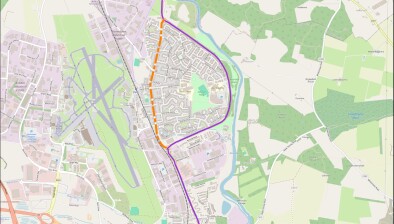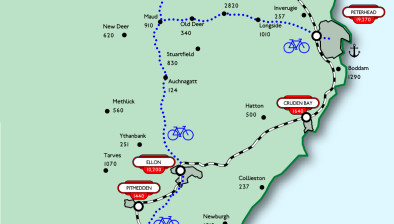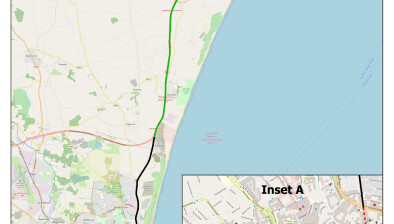Consultation starts for improving transport connections on A93
A public consultation has started to help the process of identifying options for improving transport connections on the A93 from Aberdeen to Banchory.
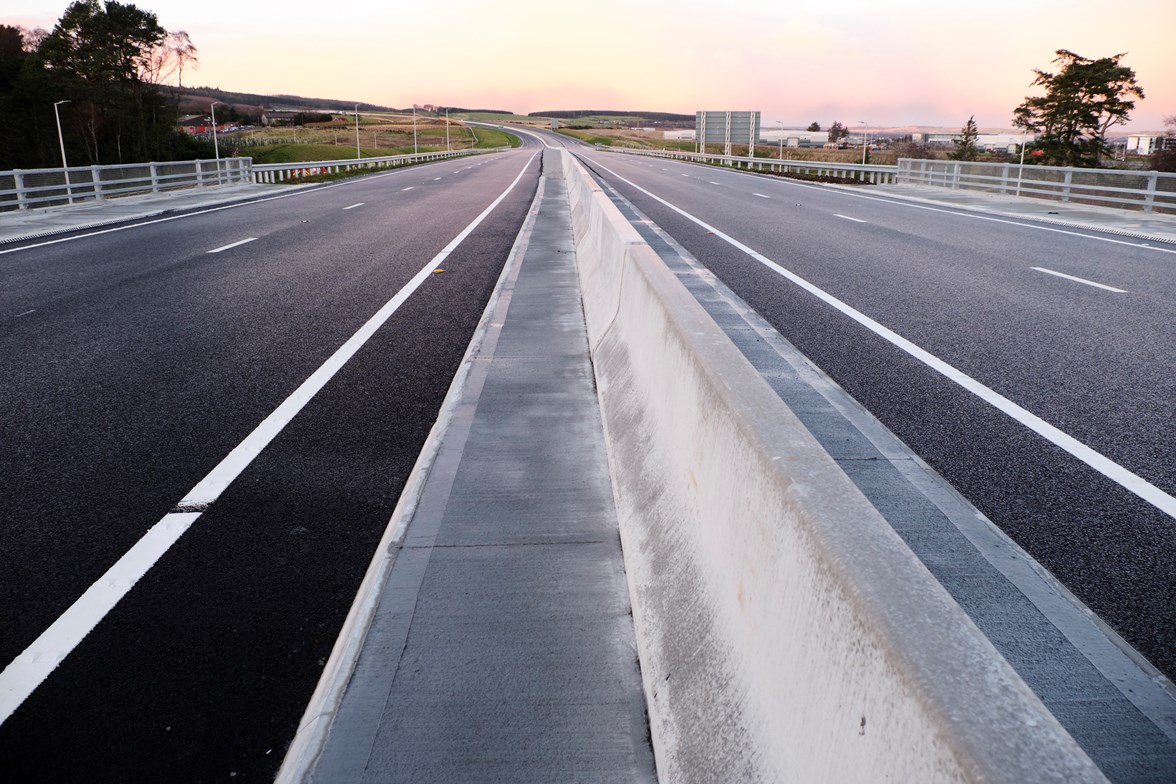
The Aberdeen Western Peripheral Route
The study, which will particularly focus on active travel and public transport connections, continues the ongoing work of Aberdeen City Council and partners to consider means of locking-in benefits of the Aberdeen Western Peripheral Route (AWPR) on the principal transport corridors linking Aberdeenshire and Aberdeen.
The recent revision of the roads hierarchy in the city cemented the role of the A93 corridor as a priority radial route and a key challenge for the study is the need to develop options which promote sustainable travel along the corridor whilst ensuring that there are no unintended routeing consequences on parallel routes.
The public consultation is in the form of an online Placecheck exercise which allows key locations reflective of the key transport-related problems and opportunities on the A93 corridor to be identified.
Aberdeen City Council transport spokesperson Councillor Sandra Macdonald said: “We welcome the start of the process to identify options for improving transport connections on the A93 as part of the continuing work to lock-in the benefits of the AWPR in Aberdeen and Aberdeenshire.
“I’d encourage people who use the route and particularly residents in the local area to take part in the study.”
Aberdeen City Council has commissioned a Scottish Transport Appraisal Guidance (STAG)-based study to identify options for the corridor. AECOM has been commissioned to undertake this study.
In line with the objective-led approach afforded by STAG, an early task will be to establish the key transport-related problems, issues, constraints, and opportunities on the A93 corridor.
This period of public and stakeholder engagement will include the Placecheck exercise, targeted local community engagement, site-based Study Tours to allow direct corridor-based engagement with key stakeholders to discuss and observe issues on the corridor itself, workshop sessions with schools to engage young people on the corridor in local transport issues, and a wide-ranging engagement exercise with special interest groups including those representing walkers, cyclists and people with health conditions or impairments.
As the study moves through the appraisal process, a further round of consultation will be undertaken next year which will provide further opportunity to feed back on the options emerging in the study, ensuring members of the public and stakeholders are involved in the study at each critical stage.
The Placecheck exercise is available here and is open for responses until December 1.














